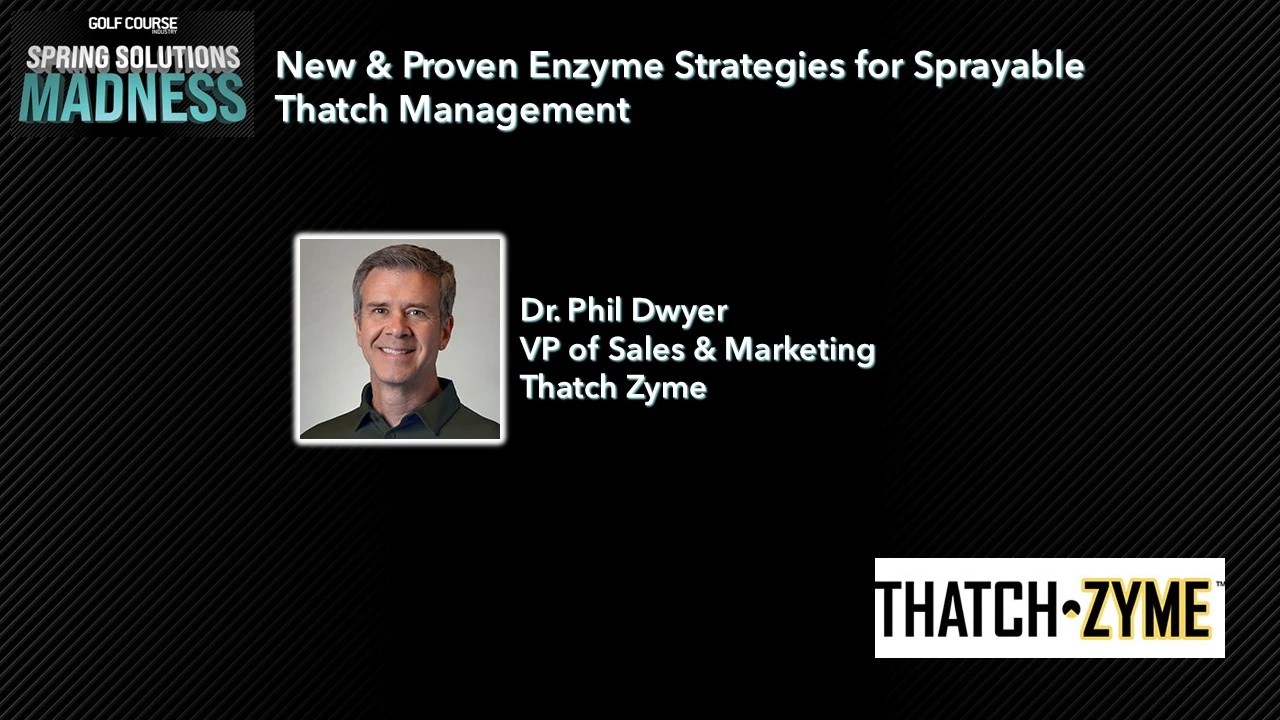 A superintendent’s greatest asset is his knowledge. However, there are ancillary assets that serve as the icing on the cake. Put it all in a sharp looking package with the proper etiquette and you have a person at the top of their game.
A superintendent’s greatest asset is his knowledge. However, there are ancillary assets that serve as the icing on the cake. Put it all in a sharp looking package with the proper etiquette and you have a person at the top of their game.
Look the part
In my early years, I spent time as a caddie and then worked in the rack room and pro shop. I marveled at the way the head pro and his assistants carried themselves with their attire. They showed up for work looking like they were ready for a GQ cover shoot. Over the years, I learned the PGA instilled in its members the value of proper attire to succeed in the golf industry. If the pro was on the tee with members, you surely could not tell them apart.
There is a lot to be learned from what golf pros have done for years. A decade or so ago, I was in a focus group that discussed how to improve superintendent public relations. I offered up, “We will know our PR campaign is working when foursomes show up at the first tee with a member, pro, superintendent and club manager, and you can’t tell which one is the superintendent.”
My father offered this safe advice: “Dress for the job you want to have rather than the job you do have.” His message was to look as professional as possible at all times. For a superintendent, this means a pair of slacks and a nice golf shirt. Keep a dress shirt, tie and jacket in your closet for the occasional surprise meeting at the clubhouse.
There are occasions when you need to get your hands dirty and that may necessitate coveralls. Also, while the dressy concept fits most facilities, there are exceptions. The old adage “When in Rome, do as the Romans do” applies. In many parts of the country, nice golf shorts are permissible during the warm months. While blue jeans would not seem like proper attire, I attended a superintendent meeting in Texas and learned golfers and superintendents alike wore jeans as normal attire. Bottom line is wear what fits with the players and staff at your facility.
I fondly look back at a time when I had an assistant working for me who wanted to know how to gain members’ respect. I told him he needed to look the part. With that, he got rid of the uniform shirt with his name on it, the blue jeans and the keys hanging from his belt. For a couple hundred dollars, one can buy several pairs of Dockers, some logo shirts from the pro shop and a nice club cap. Within weeks, he told me it made a world of difference.
Back then.
Most of the younger generation is unaware of the time when superintendents had golf outings at the club and then went to a local restaurant for their meeting. Yes, there was a time when greenkeepers were not allowed in the clubhouse, even on Mondays when many clubs were closed. Best guess is that it may have been related to dress codes and the perception that greenkeepers were the hired help. Superintendents have come a long way, but there is still a lot more to be done to be “welcome” at any type of a venue.
- Follow the club dress code
- If you don’t know the dress code, then dress like the members of that club would, or better yet, ask
- Don’t wear hats inside clubhouses
- For superintendent meetings, wear a nice cap with a generic logo or your own club logo. Don’t look like a billboard for an advertising agency
- Tip the club staff appropriately at the beverage cart, locker room, etc.
Respect.
Respect is an important part of PR and you have to give it to get it. This is a great lesson for both young assistants and current superintendents. Telling someone what to do rather than showing them what to do can make a huge difference. Getting into the trenches with someone can create a very positive attitude and boost employee morale. You are a leader and a manager, and successful superintendents learn this technique early in their careers.
Professionals show respect for their peers and their supervisors by being on time for meetings and finishing projects as promised. Be known as the “Get ‘er Done” guy at your course. Set the standard and keep it at the top rather than doing just enough to get by.
Focus.
The first thing that comes to mind is to focus on the task at hand. Know what the membership wants and provide it. If you don’t know, then it will be a challenge to provide it. Know your strengths and weaknesses and understand any gap that may exist. Work on strengthening areas that need it.
Focus on people when they speak to you. This includes eye contact when in person, and providing your full attention when on the phone. All too often modern technology has enabled us to text, Skype, email and search the web all from our phones. This is great, but we need to know when it is appropriate and when it is not. Keeping your phone on silent or vibrate will be appreciated by others. In fact, shut the phone off before you go into a meeting. It is doubtful that any emergency would occur that would require your attention in the hour or less the meeting might last. Glancing at a phone during an important meeting sends a message that what is on your phone is more important than the meeting you’re engaged in.
Treat your staff well or better. It’s rare to find a superintendent who does it all himself. We need a team to accomplish our goals. The rough and gruff approach to management seldom works. It is more important to treat your staff with respect and remember that without them you would be nowhere. Pros know how to get the best out of their people.
Every superintendent is going to run into situations that make their blood boil. What I might say at the moment I find a mower in the lake and what I might say 10 minutes later may be totally different. That 10 minutes gave me time to calm down and for the other party to simmer over the consequences they may face. I would always handle the matter professionally and without anger after that 10-minute cooling down period.
However, we don’t always have the luxury of a 10-minute grace period when we’re forced to react or respond to the GM or the green chairman. Make sure your words are measured and often less is better in those conversations.
Remember, logic rules over emotion when communicating. Positive enthusiasm is fine, but anger and harsh words will result in scars that remain to haunt you and impede your career during the rest of your employment at that facility.
Emails on touchy topics should be written and saved without sending immediately. Instead, exercise restraint and apply the 10-minute premise with sensitive emails. Consider waiting until the next day to send the message.
Texting is a quick way to send messages. It is a series of words and often does not denote any exact feeling. A text is meant for a quick message or response and not meant for an in-depth dialogue. Use proper language and be sure auto correct does not embarrass you. Always double check your message before hitting the send button.
Summary.
If you want to be treated like a professional, then you should act like a professional. Remember, it is about how you look, how you act, how you lead, how you present yourself and how you communicate to those you work with. Time to step up and get the respect you deserve.
Bruce Williams, CGCS, is GCI’s senior contributing editor.

Explore the October 2014 Issue
Check out more from this issue and find your next story to read.
Latest from Golf Course Industry
- From the publisher’s pen: Foggy intrigue
- USGA releases Water Conservation Playbook
- Vilamoura Golf courses awarded GEO Certified status
- GCSAA’s Health in Action 5K/2K reaches fundraising goal
- Landscapes Golf Management to participate in data analyzation initiative
- Reel Turf Techs: Carl Michael
- Atlanta Athletic Club approves funding for master plan
- Maximizing Cultural Practices and Agronomic Benefits with Minimal Surface Disruption






